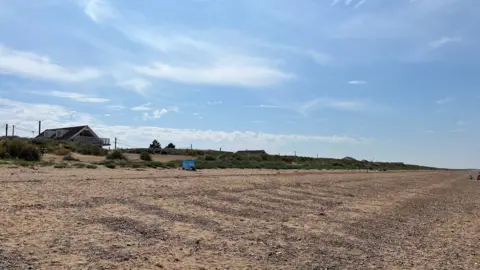Dogs accused of causing coastal erosion
 Getty Images
Getty ImagesDogs have been blamed for causing coastal erosion by damaging vital sea defences along a vulnerable section of the coastline.
West Norfolk councillors have called for measures to stop dogs from digging up the shingle ridge – a key flood defence that protects thousands of homes along a seven-mile stretch of beach between Hunstanton and Snettisham.
It followed warnings from Environment Agency (EA) experts that the coastline is under threat of being eroded due to human activity.
In a recent report, officials urged for access to be restricted along some parts of the beach to protect the shoreline.

The shingle ridge forms the primary flood defence along the low-lying coastline, which is vulnerable to tidal surges.
A King's Lynn and West Norfolk Borough Council environment and community panel meeting saw members meet with EA officials to discuss the future of flood defences.
Sandra Squire, an Independent councillor and the cabinet member for environment and coastal, said: “We need to encourage people to avoid walking and damaging the shingle ridge.
“This should also include dogs as people often allow their dogs to dig into the [ridge].
“This is also damaging and people need to be responsible for their own actions.”
Signs could soon be placed along the beach to tell people to avoid stepping upon the ridge in a bid to stop further damage.
The report concluded the ridge was in good condition and had actually been growing naturally.
But an EA official hoped that discouraging walkers would prevent damage to the vegetation which helps maintain the ridge's structure.
It concluded a trigger point had been reached, which means beach recharges costing £5m to 8m will not go ahead in the future due to the costs being no longer viable.
Follow Norfolk news on BBC Sounds, Facebook, Instagram and X.
